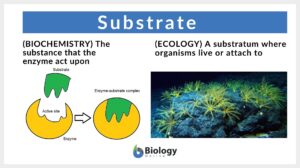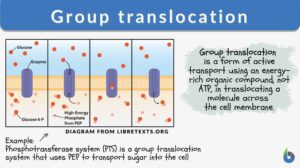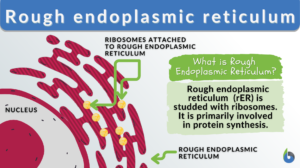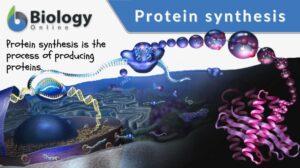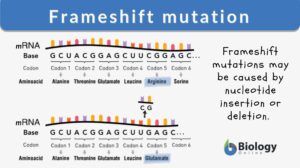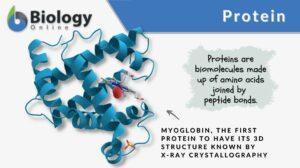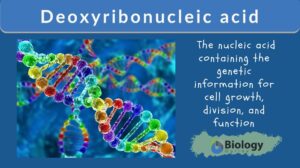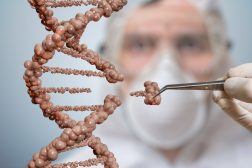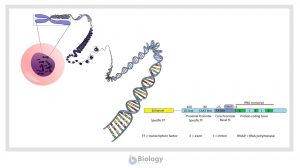Search Results for: modification enzyme
Modification enzyme
modification enzyme (Science: enzyme molecular biology) An enzyme that introduces minor bases into dNA or rNA or that alters... Read More
Glycolysis
What is Glycolysis and Why is it Important? Glycolysis is a metabolic pathway by which the 6-carbon molecule of glucose is... Read More
Endoplasmic reticulum
Endoplasmic Reticulum Definition The endoplasmic reticulum is a membrane-bound organelle in cells of eukaryotic cells... Read More
Genetic Information and Protein Synthesis
Genetic Code Genes are sequences of DNA nucleotides that carry and transmit the information specifying amino acid sequences... Read More
Ribonucleic acid
Ribonucleic Acid Definition noun (uncountable), ribonucleic acids ri·bo·nu·cle·ic ac·id, raɪboʊnjuːkliːɪk... Read More
Plant Metabolism
Introduction Plants are responsible for incredible feats of molecular transformation. The processes are always being... Read More
Isomaltose
Definition noun plural: isomaltoses i·so·mal·tose, aɪsoʊˈmɔːltəʊz A disaccharide formed from the combination of... Read More
Group translocation
Group Translocation Definition Just like your “home” is a private place where you and your comfort are maintained due... Read More
Tropocollagen
Definition noun, plural: tropocollagens A single collagen molecule; a molecular structure that makes up a collagen fiber,... Read More
Isomaltulose
Definition noun plural: isomaltuloses A disaccharide comprised of a glucose monomer and a fructose monomer joined by... Read More
Nucleosome
Nucleosome Definition Every organism is made of deoxyribonucleic acid, also known as DNA. DNA is made up of numerous... Read More
Glycosylation
Definition noun A biochemical process where a glycan attaches to a protein, a lipid, or other organic molecule, especially... Read More
Nucleic acid
Nucleic Acid Definition A nucleic acid refers to any of the group of complex compounds consisting of chains of monomers of... Read More
Rough endoplasmic reticulum
Rough Endoplasmic Reticulum Definition The rough endoplasmic reticulum (rough ER or rER) is a membrane-bound organelle... Read More
Protein synthesis
Protein synthesis is the process of creating protein molecules. In biological systems, it involves amino acid synthesis,... Read More
Frameshift mutation
Define Frameshift Mutation What is a frameshift mutation? In biology, insertions or deletions of nucleotides in the coding... Read More
Non-Mendelian Inheritance
Reviewed by: Mary Anne Clark, Ph.D.The inheritance patterns seen in Mendel's monohybrid and dihybrid crosses... Read More
Deoxyribonucleic acid
Deoxyribonucleic Acid (DNA) Definition A nucleic acid refers to any of the group of complex compounds made up of linear... Read More
Positive feedback
Positive Feedback Definition Each mechanism of the body like temperature, blood pressure, and levels of specific nutrients... Read More
Polygenic inheritance
Polygenic inheritance refers to the kind of inheritance in which the trait is produced from the cumulative effects of many... Read More
Endomembrane system
Ever wondered how biomolecules are made within the cell and then they are released outside the cell for use by the body?... Read More
Genetic Engineering Advantages & Disadvantages
Through genetic engineering, scientists are able to move desirable genes from one plant or animal to another or... Read More
Disruptive Selection
An evolutionary process known as disruptive selection (or disruptive natural selection) causes a population to become... Read More
Gene Regulation in Eukaryotes
Reviewed by: Mary Anne Clark, Ph.D.Eukaryotic Gene Structure In prokaryotes the DNA is located in the... Read More
Psychrophile
Definition noun, plural: psychrophiles An organism that thrives in cold temperatures, i.e. ranging from −20 °C to +10... Read More



